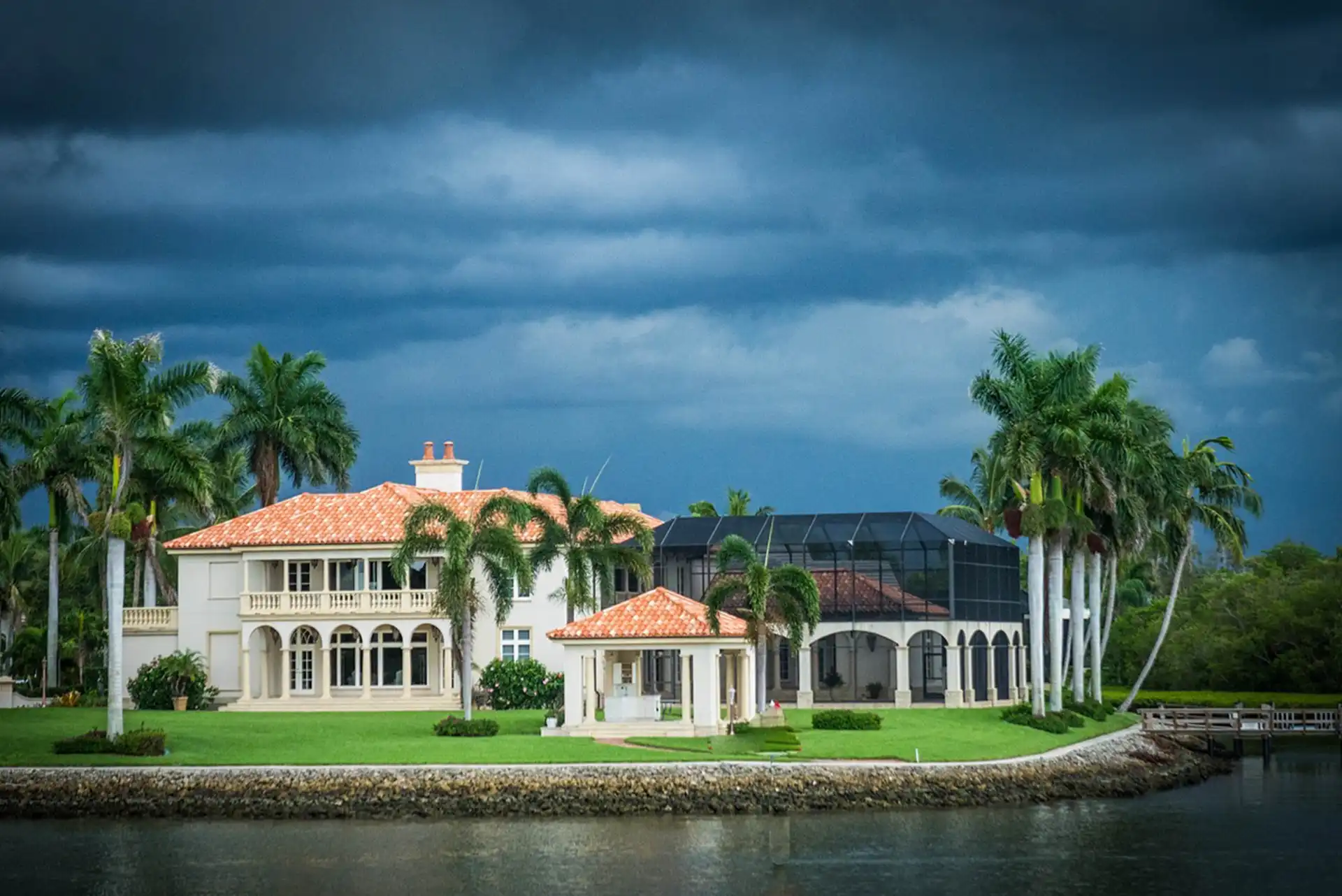Shortly after my business started generating significant profits – mostly because I closed a huge project for a massive retailer, I needed somewhere to invest.
At the time, I loved the idea of rental properties as I was still a little apprehensive about stocks. They generate cash flow, they are real, physical assets that I can touch and they would be an outstanding storage of wealth. I consistently put money aside and purchased 4 properties over the span of 3 years.
All cash. I always hated the idea of debt.
Everything went well. Rents came in and I put that money towards the next purchase and kept building up my portfolio. With no debt, the cash flow was rather significant.
Real estate values in Florida were booming and the properties were creeping up in value.
And then things changed.
After a few late night calls for repairs and a small flood at one of the properties – it got me thinking and doing numbers on alternatives. Not necessarily because of these issues, but it was certainly a catalyst.
For example, I could also cash out my rental properties and pay off my primary house, which had a mortgage of about $1,000,000 and a 4% interest rate. I would have enough left over to make a $200,000 investment in a real-estate crowdfunding platform that would be entirely hands off.
Now, if you are one of those “smart money” folks – you might think it was crazy to dump these properties to pay off a 4% mortgage. That’s insane! 4% on $1M, when stocks generate 10% – why would you do such a thing?
And this is when I had an epiphany. You see, it’s not always strictly about the best returns – but setting financial goals and reaching them.
Focus On Your Goals
At this point, I had about $1.2M after seller fees. I won’t focus on the tax strategies here because it’s not relevant. (we sold over multiple tax years, among other things).
Now $1.2M is a lot of cash. Using the 4% rule based on the Trinity Study, you could safely generate about $48,000 in annual income for the rest of your life. I was 32 years old at this time. Imagine that?
My goal wasn’t the largest possible account, it was financial security.
And in many ways, I had now reached that goal.
Asset Protection and Preservation

So why pay off my house? What is the point of doing that? Why not just invest it all for higher returns?
Asset protection and preservation. Now don’t get me wrong, having zero debt is also rewarding and I don’t know anyone living debt free who regrets it – but this decision was about a guaranteed 4% return, but more importantly, protecting and preserving the funds.
Florida, where I live, has strong homestead laws. In fact, your Florida primary residence is the strongest and most protected asset in the country – virtually untouchable.
Rich people don’t only move to Florida for the great weather.
I purchased an expensive house for a bit over $1M that is now worth about $2.5M – which made sense as I wanted to protect as much money as possible (and hey, why not have an awesome house, too?).
In other words, I’m storing about $2.5M in the most protected asset available in the country.
Untouchable by creditors.
Could I generate more returns in the market? Sure, and I’ll do that with my business income – but reaching my financial security goals and protecting my financial future was far more important than additional market returns.
What is the lesson here?
The best advice is the advice that works for you.
Ignore the noise around the mortgage debate. Most people don’t actually invest the money they “save” from not paying off their mortgage early. Which means most would benefit from paying off their home and using it for protected wealth storage.
That doesn’t mean paying off a mortgage or even buying a home is the best advice for everyone. If you genuinely keep your living costs as low as possible and invest every dime you save – along with some serious financial discipline, then sure, keep a mortgage or even continue renting.
For the rest of us? Maybe getting rid of that debt and protecting our funds isn’t such a bad idea.
Want an update when I post new content? Consider signing up for my newsletter.

2 Responses
Oops, big mistake selling your rental properties. Your business could go Kaput, but rental properties keep on giving.
Appreciate the feedback! Though I did address this in the post. Business going kaput would just mean early retirement with the stored funds.